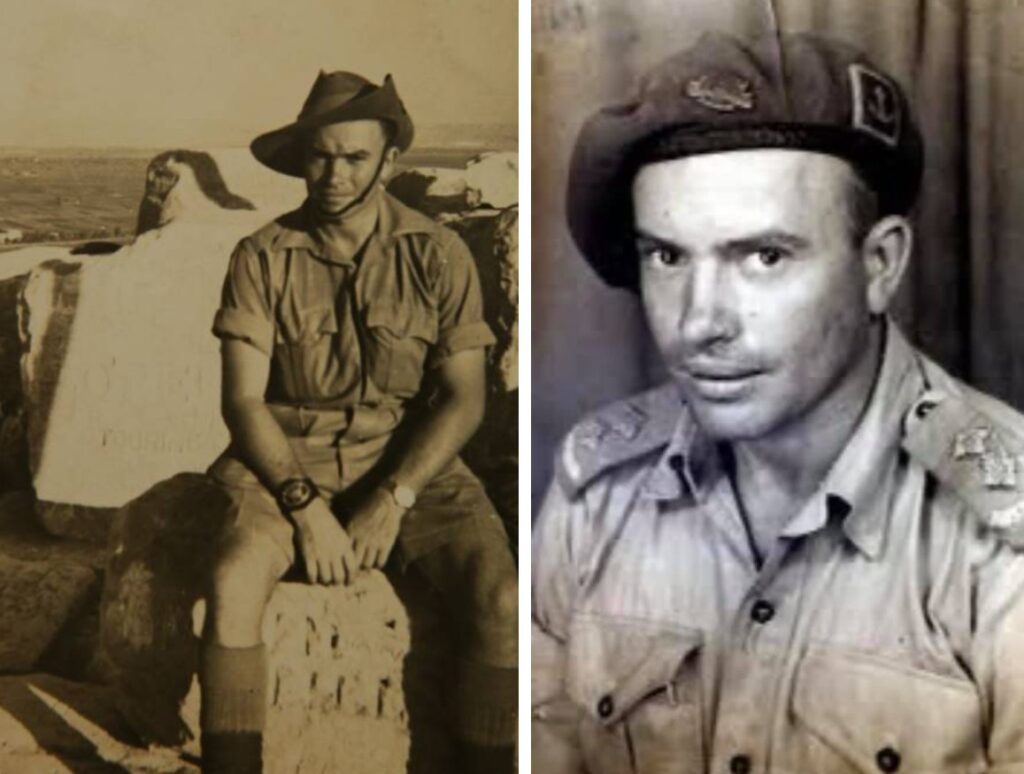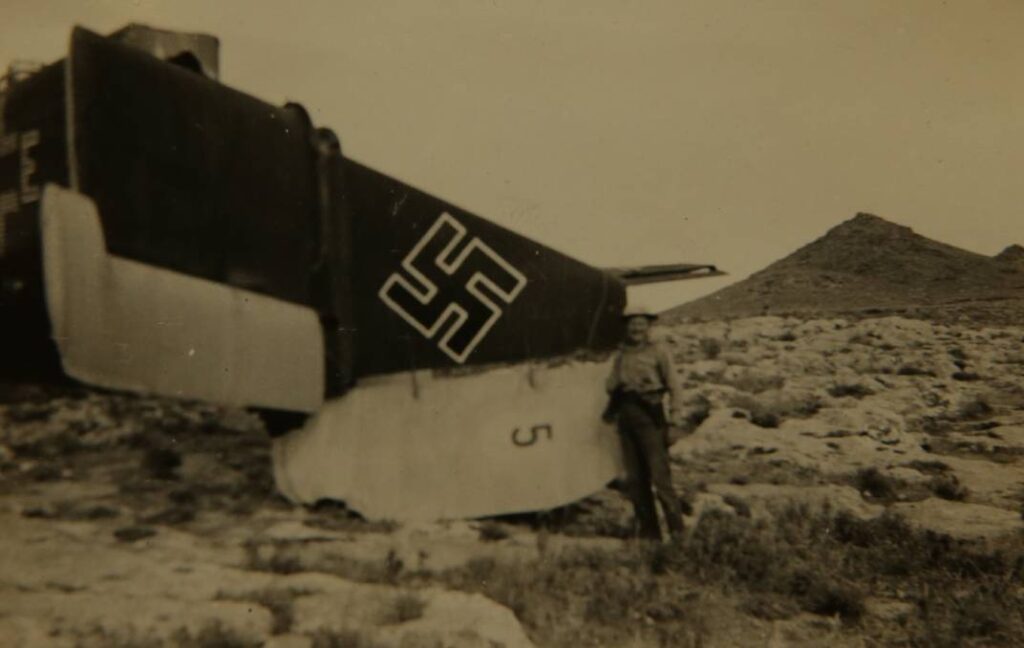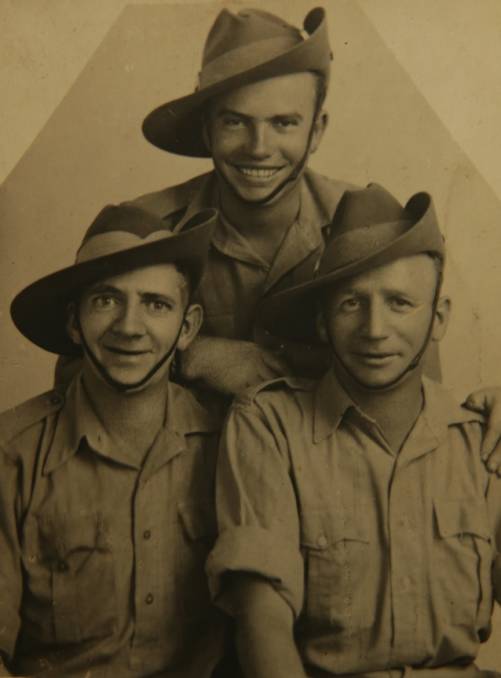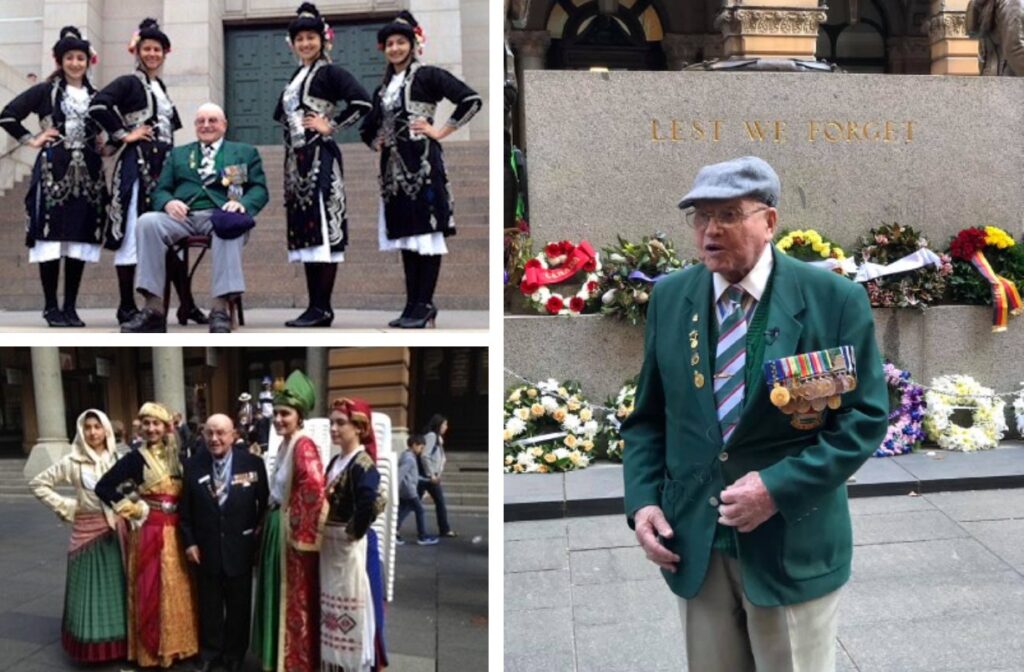At 105 years of age, Alf Carpenter is one of Australia’s oldest surviving Anzacs. He’s lived through two world wars, the Great Depression, 9/11 and now the coronavirus pandemic, but none are as personal to him as the Battle of Crete – which this year marks its 80th anniversary.
Alf’s journey to being an Anzac soldier in the Cretan battle begins at age 18 when he first decided to enlist in Australia’s 56th Battalion Militia Forces in 1934. Although Alf’s parents weren’t happy about him joining the army, he wasn’t letting anyone stop him.
“I enlisted in the army because an uncle of mine enlisted in the army in WWI and I admired him,” Alf, who was born in Wagga Wagga, tells The Greek Herald exclusively.
While the 104-year-old had no idea of the extraordinary challenges that lay ahead of him because of this decision, he never wavered in his resolve to serve for Australia. In fact, he continued to progress up the army ranks and eventually became the Regimental Sergeant Major of the 2/4th Australian Infantry Battalion in 1939.

Only two short years later, on May 20, 1941, Alf and his fellow Anzac men were preparing to fight alongside the Greeks and other Allied forces in the Battle of Crete after the Germans invaded the island.
The Anzacs and Greeks in action on the battlefield:
Alf’s battalion arrived on Crete after first being pushed back by the German army at Vevi Pass near the Greek-Albanian border and later, Brallos Pass. He says the reception Greek people gave the Anzac contingent when they arrived was unbelievable.
“The Greek people were delighted to see us there. They gave us every assistance and gave us food like eggs. I got on really well with the Greek people,” Alf says.
But this delight quickly turned to horror when the German paratroopers invaded Crete. Alf remembers the day as if it was yesterday, describing how he and some of his fellow soldiers were meant to go to the harbour for a wash when they were warned the German airborne attack was heading their way.

“Within a couple of hours, the area of and around Souda Bay was under bombardment. At about 4 o’clock in the afternoon, we heard this buzzing coming from the sea and we looked out and saw these transporters coming in and when they got to the shoreline, the paratroopers came down on top of our position,” Alf explains vividly.
“We got used to fighting against the enemy on ground level but that was the first time we had to fight them coming from the sky. But I was never afraid of the enemy, they had equal chances with us and the Greeks couldn’t do enough for us.”
Despite this lack of fear, Alf still wasn’t invincible. In fact, the Anzac was wounded during the defence of Heraklion.
One day, under a white flag, a German medical officer brought two wounded paratroopers to the Battalion headquarters to be treated by an Australian doctor. While Alf says he was suspicious of the medical officer’s motives, he was still allowed to leave the headquarters under the protection of the flag. It was this decision which almost cost Alf his life.
“The next morning, they put the mortar bombs onto us. He let the Germans know where we were and that’s how I was hit by shrapnel on the side of my head,” he says.

Injuries such as these were not uncommon on the battleground, especially once the Germans managed to secure a foothold on Crete and gained the upper hand after 12 days. According to the Joint Committee for the Commemoration of the Battle of Crete and the Greek Campaign, the battle resulted in the capture of 3,102 Australian troops, the deaths of more than 6,000 civilians and Allied casualties totalling 15,335.
Alf’s life after the Battle of Crete:
Eventually, the bulk of the Allied force and the Anzacs who had survived the Battle of Crete, including Alf, were evacuated to Egypt. Alf later fought in Syria before boarding ship, ‘SS Rajula,’ at Port Tewfiq in Egypt for passage back home to Australia and his wife Marjorie on February 17, 1942.
When Alf arrived in Darwin, he defended the city against a Japanese attack and successfully completed officer training in South Australia. Later, he was appointed the Australian Army Representative to Greece, where he was stationed at Eleusis Bay and had the chance to march in army parades.
His last military appointment was as Deputy Assistant Quarter Master General of the Northern Territory force because he finally decided to apply for discharge on April 4, 1946. By this stage, Alf had already served Australia for more than 12 years and he was not yet 30 years old.

Of course, it’s no surprise then that the army culture is still embedded proudly in Alf’s everyday life. For over 20 years, the Newcastle resident has travelled to Sydney to march in the ANZAC Day parade and he says he hopes he can do it again this year.
“I usually lead the 6th Division for the Anzac Day march in Sydney. If I’m okay and depending on what’s on, I’ve told them I will be there as the commander,” Alf concludes proudly.
The perfect opportunity to honour the incredible life of this 104-year-old Anzac who’s heroic actions in the Battle of Crete deserve to be recognised.


